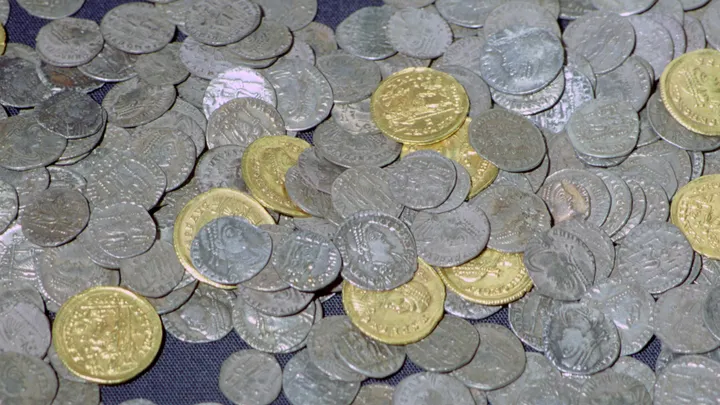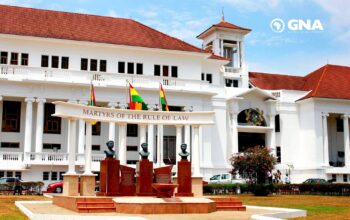A group of metal detectorists known as the Teignbridge History Finders has made an exciting discovery in Devon, England, unearthing a hoard of 21 ancient coins near Okehampton Castle. This significant find, which took place over a few weeks at the end of 2023, has only recently come to light due to legal requirements surrounding treasure discoveries. Led by Jim Luxton, the group is celebrating what they are calling the “Okey Hoard,” marking their first major achievement since forming.

Initially, the group stumbled upon just a few coins, but as they returned to the site, their luck changed dramatically. Luxton recounted, “At first it was three coins. I then got a call to say I had better get over to the area as we had found another eight coins.” Eventually, a total of 21 coins was recovered, dating from 1282 to 1434 A.D. Under the Treasure Act of 1996, the discovery was classified as treasure, requiring the finders to report it to the local Coroner and the landowner.
While the coins may not hold significant monetary value, Luxton emphasized their historical importance. He expressed hopes that the Okey Hoard will be displayed in a museum, allowing the public to appreciate this glimpse into the past. The find is part of a rich tradition of metal detecting in England, which has yielded remarkable discoveries over the years, including the famous Staffordshire Hoard and the Hoxne Hoard.

These historic discoveries not only shed light on England’s past but also inspire modern treasure hunters to explore the countryside with their metal detectors. As the Teignbridge History Finders celebrate their newfound treasure, they join the ranks of amateur archaeologists whose serendipitous finds contribute to our understanding of history.









